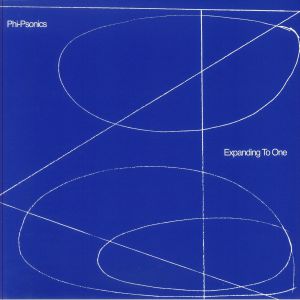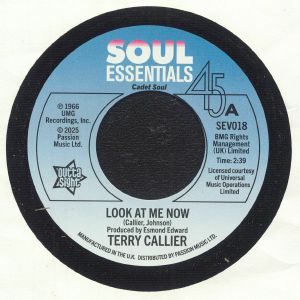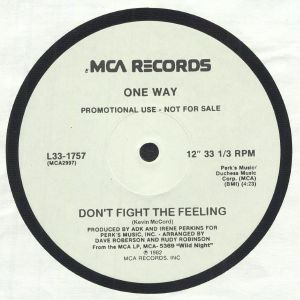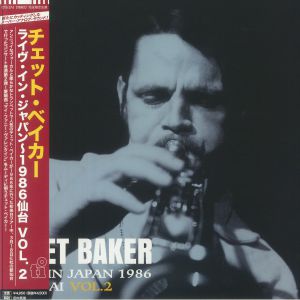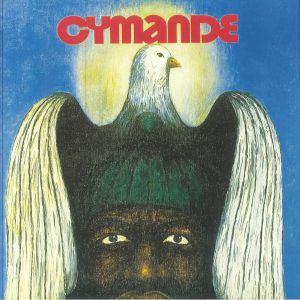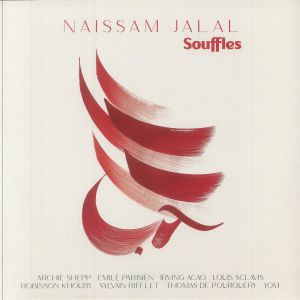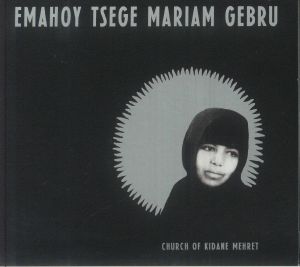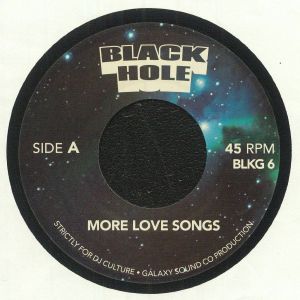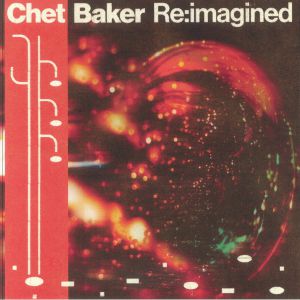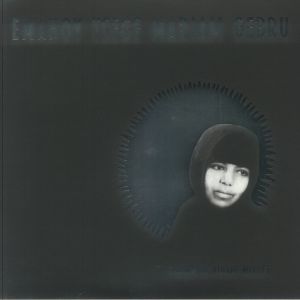Jazz charts
Bestselling Jazz vinylReview: Measured Mile, the 7"s label run by Bob Stanley, firms its focus on DJ-friendly 45s that are or were either very rare or previously unavailable in the format. Its run of sharply curated 7"s is replenished with another three-tracker, this time an unusual choice, fencing two classic British sports broadcasting themes, pivoting from midtempo funk to faster breaks. Leading the A are two standouts from Douglas Wood, 'Cranes', known as the punchy, synth-heavy theme from the BDO World Darts Championship - and 'Drag Racer', the atmospheric opener to the BBC's Snooker World Championships coverage, both drawn from the revered Studio G library catalogue. On the flip, John Cameron's 'Sprocket Shuffle' - the lively 1980s ITV Snooker theme - rounds out the package in a flurry of analogue texture and charming nostalgia.
… Read more in stock ₺463,12
Review: A striking departure from the classic piano-bass-drums format, this 1962 session brings together a rare quintet configuration, weaving trumpet and guitar into the fabric of post-bop elegance all based around New Jersey-born pianist Evans. The interplay is both literal and musical between the musicians. With trumpet lines that alternate between burnished lyricism and bursts of fire and guitar passages that glide with subtle precision, the ensemble creates a sound that is both spacious and tightly knit. The repertoire leans into standards, yet each tune is rendered with a fresh rhythmic spark and harmonic sophistication. 'I'll Never Smile Again' shimmers with wistful melancholy, while 'When You Wish Upon a Star' is recast with a gentle yet cerebral charm. Fans of more intimate trio settings might initially find the added instrumentation unfamiliar, but there's an undeniable allure in the expanded sonic palette. The drummer drives the group with crisp energy while the bassist anchors with subtle authority and the collective chemistry elevates the session beyond typical quintet fare. This is a bold, beautiful detour in the legacy of modern jazz and one that rewards the listener. A reissue worth revisiting, or discovering anew.
… Read morePlayed by: Juno Recommends Jazz
in stock ₺1.653,99
Review: Released in 1977 on Buddha Records, Norman Connors' heartfelt number 'Once I've Been There' is a lush piece of honest-to-goodness soul music that's long been held in high regard by diggers. It features a powerful vocal performance from Prince Phillip Mitchell, warm orchestral instrumentation, and a gentle groove arranged by Jerry Peters. Blending elements of classic r&b with jazz sophistication, the track has a timeless, cinematic feel. It's a standout in US drummer Connors' catalogue. Released in the same year, 'Captain Connors' is a loose and limber soul-jazz workout, with energetic horns and deinty keys riding over a sprawling arrangement. Well worth adding to the collection.
… Read morePlayed by: Pete Haigh
in stock ₺793,39
Expanding To One (Deluxe Edition) (limited 2xLP + booklet)
Cat: GONDLP 76LE. Rel: 29 May 25
Review: Expanding To One is the third album from Phi-Psonics and is a serene meditation on community, connection and healing. Led by bassist Seth Ford-Young, the project captures the spirit of six live and intimate sessions recorded in Pasadena's Healing Force Of The Universe record store and the tracks, which were largely improvised, glide through soulful, spiritual jazz with warmth and clarity. Highlights like 'There's Still Hope' and 'Healing Time' showcase a rotating ensemble of LA's most sensitive players and they all create music that is both grounding and transcendent. Thoughtfully edited and deeply personal, this is the sort of record that cajoles you into a space of stillness, togetherness and quiet, essential reflection.
… Read more! low stock ₺1.322,67
Review: For five years, Acid Jazz has been showcasing Kevin Fingier's productions with each one carrying his signature Latin flair. It all began with 'Latin Dynamite', which sold out 15 days before its release and was followed by 'Cocktail de Medianoche' and 'Why Don't You Go Home', which were both instant sellouts. The second pressing of 'Latin Dynamite' included a fiery Latin rendition of the r&b classic 'It's Your Voodoo Working'. When Fingier released 'Not Strictly Soul,' it featured the Latin gem 'El Popcorn' which is now available on 7" for the first time. These four Latin Soul anthems are now united in one explosive Boogaloo EP that arrives just in time for summer.
… Read morePlayed by: Craig Charles Funk And Soul, Juno Recommends Soul
in stock ₺705,53
Review: After a wild shelf-clearer came by way of a reissue of 'Ordinary Joe' earlier this year, we've now a second Outta Sight reissue of yet another gladly intoned Terry Callier deep cut on our hands. Born and raised in Chicago's Cabrini-Green, Callier came up alongside a generation of soul and jazz innovators but always stood apart. After his debut LP The New Folk Sound fell into obscurity, and his 1968 Cadet single 'Look At Me Now' slipped past unnoticed, he was brought into his mentor Jerry Butler's Songwriters Workshop, a game-changing move. This stirring early statement works in much inner commentary on manhood, stage fright and vital moment seizure - "now my people think I just fake it / I know I do things they don't understand / so I've got to show them I can take it / I've got to show 'em I can be a man" - aches with the strain of double consciousness in a performance society.
… Read morePlayed by: Craig Charles Funk And Soul, Juno Recommends Soul
in stock ₺617,14
Review: UK mambo kinds Orchestra Mambo International share their second single for ATA Records, both on digital and vinyl formats once more. After a dazzling debut single for the label back in May 2024, 'Balia Mi Cha Cha' is a funky cha cha number driven forth by the songwriting of bandleader and trombonist Jonny Enright, backed up by vibraphone from John Settle and lead vocals from Venezuelan singer Carlos "Pachanga" PeNa. The B-side, meanwhile, is a mambo instrumental entitled 'Bajo Con Vibes' ('Bass With Vibes'), which riffs on the double metonymy of the word "vibes" and plays up to a fantastically warm bass sound, providing a proper aural rung onto which central part of the track the listener may latch themselves and become thus enthralled.
… Read more in stock ₺440,89
Review: The Blackbyrds, Washington Direct-Current pioneers of jazz-funk from the early 70s, overloaded the jazz circuit with City Life, a hair-frying album renowned for its flowing, fulminous rhythms. Core tracks 'Happy Music' and 'Rock Creek Park' set the stage for a long sampling legacy: the latter was famously sampled by both De La Soul and Nas, on 'Bitties In The BK Lounge' and 'Fried Chicken' respectively. This reissue, cut from the original tapes (AAA) by Kevin Gray and pressed on 180-gram vinyl at RTI, reupholsters the Blackbyrds' debut worm-catching funk pecks for the world's ears to witness once more.
… Read more in stock ₺1.587,30
Superb (translucent tangerine vinyl LP (indie exclusive))
Cat: BCR 183LPC2. Rel: 15 May 25
Review: Moving away from their usual meticulous approach, this Australian cinematic soul outfit embraces spontaneity, infusing their signature sound with newfound energy and groove. The result? A record brimming with vibrancy, experimentation and undeniable funk. The opener, 'Sleep Dreams', is a laid-back entry point before 'Bully Ball' crashes in with its raw, thunderous drums and deep-pocket funk. The band's sonic explorations continue on 'Body Slam', a track that begins with a sweet soul feel before morphing into something dark and eerie, highlighted by a timpani recorded in a distant bathroom. That same adventurous spirit shines in 'Fare Evader', where sci-fi-esque synths punctuate a hard-hitting rhythm. Surprise Chef pushes the tempo on 'Consulate Case' and 'Tag Dag', drawing from afro-funk and jazz-funk influences, while ballads like 'Websites' and the ethereal 'Dreamer's Disease' showcase their softer, cinematic side. With Superb, Surprise Chef amplifies the fun without sacrificing their signature musicianship. This album solidifies their ascent from underground favourites to a global force in modern soul.
… Read morePlayed by: Juno Recommends Jazz
in stock ₺992,40
Expansions (reissue) (gatefold 180 gram vinyl LP 再出版)
Cat: HIQLP 067. Rel: 20 May 25
Played by: Dave Lee ZR, Dynamite Cuts
in stock ₺992,40
Oh Good Grief! (yellow vinyl LP)
Cat: 081007 5115147. Rel: 23 May 25
Review: In 1968, celebrated American jazz pianist Vince Guaraldi moved away from Fantasy Records to Warner Bros and marked a new chapter with Oh, Good Grief!, his debut album on the label. Revisiting his beloved Peanuts compositions, Guaraldi expanded his signature trio setup of piano, bass and drums by incorporating electric guitar and electric harpsichord. The result was a fresh new take on his iconic themes that again resonated with fans and meant the album became a commercial success. Here remastered by Kevin Gray, this classic LP returns to vinyl and remains a joyful, nostalgic journey through Guaraldi's musical world alongside the lovable Charlie Brown and the Peanuts gang.
… Read more in stock ₺871,19
Review: Recorded in collaboration with Nils Frahm at Berlin's Leiter Studio, Ganavya's fourth album is destined to carve its own path to recognition due to its unique quality. A follow-up to last year's acclaimed Daughter of a Temple, which drew praise from many music outlets, Nilam - probably best known her for her appearance alongside Sault at their recent live show - continues her journey into music as devotion, meditation and memory. Born in New York and raised in Tamil Nadu, she moves fluidly between traditions, channeling pilgrimage trails, harikatha storytelling and jazz improvisation into something uniquely her own. Her voice is unhurried, intimate and full of clarity, conjuring stillness even in motion. It's a sound that invites stillness but never feels static, where every breath carries the weight of generations and each silence says as much as her lyrics. The songs on Nilam feel distilled from years of lived experience, shaped by years of live performance as tracks like 'Sees Fire' blend Eastern tonalities with meditative jazz, fusing introspection with emotional firepower. The album traces the patterns of gratitude, loss and rootedness meanwhile anchoring the listener in a place beyond the physical. Rather than chase genre, ganavya reaches toward essence. Nilam isn't just an album, it's a moment held in reverence. A sonic altar where memory, spirit and sound meet. In her hands, song becomes a ritual of listening.
… Read morePlayed by: Juno Recommends International
in stock ₺1.245,92
Review: The Swiss saxophonist delivers a mesmerising journey through modal jazz on his latest album. Drawing deep inspiration from John Coltrane, Torrent blends intricate harmonies with raw, unfiltered improvisation, crafting a collection that is both a tribute and an exploration of new sonic terrain. The album opens with 'Danse Tropical, a reflective and richly textured piece where Torrent's saxophone weaves through intricate scales, searching yet controlled. The steady rhythm section acts as an anchor, allowing the melodies to expand and evolve organically. In contrast, 'Quannassa' injects a restless intensity, shifting through complex harmonic movements while the quartet navigates its dynamic ebb and flow with effortless cohesion. The title track, 'Buleria', is perhaps the album's centerpieceian eight-minute odyssey that fuses modal jazz with flamenco's hypnotic rhythms. Torrent's improvisation feels deeply intuitive, soaring over a meditative backdrop that evokes the vast, open landscapes of Iberia. The interplay between the quartetipiano, bass and drumsiis both fluid and instinctive, fostering an environment where the saxophone can push beyond conventional boundaries. While deeply rooted in Coltrane's legacy, Buleria is far from a mere homage. Torrent and his ensemble use the foundations of modal jazz as a springboard for personal expression, creating a sound that is both reverent and adventurous. Each track unfolds like a conversationisometimes gentle, sometimes incendiary, but always searching for something beyond the ordinary.
… Read morePlayed by: Juno Recommends Jazz
in stock ₺1.080,79
Review: Never before released in this particular form, two inscriptions by the French jazz fusion band Cortex make for a fidgeting classic each, perfect for the tube-amped dancefloor. Made up of many a cover and original, the full-length 'Inedit '79' EP first came to Underdog Records in 2006, though it was composed almost entirely of recordings laid down in 1979, proving the band's asynchronic staying power across decades. This new 7", however, recuts the lead track from the album, and a never-before-heard session floorcut respectively. The B-side in question, 'Where Do You Come From', did not appear on the 2006 release, and was also recorded later in 1981, though it is considered a part of the same inspo-flush.
… Read morePlayed by: Juno Recommends Jazz
in stock ₺738,87
Review: Seth Ford-Young's Phi-Psonics return with Expanding To One, a loose-limbed, quietly luminous third LP shaped from live sessions at Healing Force Of The Universe in Pasadena. Since founding the project in 2016, the East LA bassist has used Phi-Psonics as a vessel for collective improvisation and spiritual grounding, but this time there's a sharper edge; fourteen tracks, mostly conceived on the spot with a changeling group of collaborators, hear Ford-Young steer said ensemble through hushed dark jazz abstraction. With an ear for emancipatory politics - "the music we make doesn't exist in a vacuum and the backdrop of injustice and tragedy in our world has to be part of our music" - Phi-Psonics plays on a latent psionic ability in us all: to turn creative juices into truth.
… Read more in stock ₺595,44
Slow Traffic To The Right (Verve By Request) (limited 180 gram audiophile vinyl LP)
Cat: 752005 9. Rel: 17 Apr 25
Review: 1997's Slow Traffic to the Right found Bennie Maupin navigating between cerebral jazz and deep funk with style and ease. Though generally known for his abstract leanings and serious musical demeanour, here he showed a lighter side - not least because he is actually smiling on the album cover - while diving into grooves shaped by his time with Herbie Hancock's Headhunters. With help from rhythm masters like Mike Clark and Paul Jackson, Maupin swaps out ECM austerity for signature Oakland bounce, so tracks like 'It Remains to Be Seen' and 'You Know the Deal' excel with newfound swagger without abandoning his jazz roots. It's a compelling pivot into accessible, funky and smart jazz soul.
… Read morePlayed by: Juno Recommends Funk, DJ ROCCA
in stock ₺1.422,70
Played by: Juno Recommends Jazz, Agogo Records
in stock ₺573,21
Played by: Juno Recommends Jazz
in stock ₺540,39
Review: The classic 1982 funk anthem 'Don't Fight The Feeling' by American r&b and funk band One Way gets a fine 12" pressing here, which means it can be played nice and loud. Singer Al Hudson leads the way with his buttery vocal, while a stepping and broken rhythm with lovely dry claps and w sloppy synth squeal make for a pretty unique sound given when this was first recorded. On the flip side, Windjammer's 'I Thought It Was You' offers a more mellow, melodic contrast full of the band's signature blend of r&b and jazz with cooing, heart-melting vocals and a nice stepping rhythm that lovers of UK street soul will surely be drawn to.
… Read morePlayed by: Osmose
in stock ₺573,21
Live In Japan 1986 Sendai Vol 2 (Record Store Day RSD 2025) (limited numbered green vinyl LP with obi-strip)
Cat: OTS 374. Rel: 07 May 25
Played by: Juno Recommends Jazz
in stock ₺1.797,43
Quem E Quem (reissue) (180 gram green vinyl LP)
Cat: 333081 LTD. Rel: 06 May 25
Review: Quem E Quem is widely regarded as Joao Donato's finest work and a standout in the canon of Brazilian popular music, aka MPB. Blending American soul and jazz-funk influences with the gentle sway of samba and bossa nova, the album radiates warmth and subtle sophistication and Donato's tender vocals are framed by breezy flute passages, laid-back piano lines and guitar solos reminiscent of Pat Metheny. The result is a beautifully balanced collection of upbeat tracks and introspective moments with each evoking the tranquil pleasure of a sunset in a tropical paradise. Timeless and effortlessly charming, it remains a high point in Donato's enduring career.
… Read morePlayed by: Juno Recommends International
in stock ₺1.907,52
Review: Gary Bartz, a titan of the saxophone, has left an indelible mark on the jazz landscape through collaborations with luminaries like McCoy Tyner, Art Blakey and Miles Davis. BGP's selection of 'Celestial Blues,' featuring the soulful vocals of Andy Bey, encapsulates the essence of spiritual jazz, epitomizing Bartz's musical strength. Paired with 'Gentle Smiles (Saxy),' famously sampled by A Tribe Called Quest, this release offers a glimpse into Bartz's multifaceted artistry and enduring influence on contemporary music.
… Read more! low stock ₺496,46
Mon Cher Amor (7" limited to 300 copies)
Cat: ZP 112. Rel: 03 Jun 25
Review: Minnesota's Shaun LaBelle returns with two collaborative cuts that shimmer with West Coast class. On 'Mon Cher Amour', Maysa's effortlessly fluid delivery rides plush piano chords from Bobby Lyle, whose presence elevates the arrangement with vintage jazz-funk elegance. Lyle's involvement i rare and usually reserved i speaks volumes. Flip to 'Your Love Kept Calling My Name', a slower burn that shows off LaBelle's syrupy synth bass and clean guitar touches, anchored again by Maysa, this time joined by Stokley. The track's groove is thick but graceful, helped along by contributions from Jeff Lorber, Patrick Lamb and Maurizio Metalli. While there's a polish that veers towards the adult contemporary side of soul-jazz, both tunes have the kind of melodic strength and studio richness that make sense of their Billboard and UK Soul Chart success.
… Read more in stock ₺617,14
Played by: SPASIBO RECORDS
in stock ₺749,46
Played by: Juno Recommends Jazz
in stock ₺540,39
in stock ₺364,14
Review: To any funk digger worth their salt, Cymande have been a staple since their 70s heyday, but the Brit funk cult legends are enjoying a renewed presence since their triumphant return with reunion shows which cemented their legacy after decades being overlooked. Their story tracks back to this seminal album, a scintillating fusion which could only have occurred in Britain in the 70s as communities and cultures joined together to create one harmonious groove the likes of which had never been heard before. The whole album feels like a run of hits, from the celestial swirl of 'Dove' to the life-affirming horn blasts of 'Bra'. If you don't already have this track in your bloodstream, now's the time to catch up.
… Read morePlayed by: Juno Recommends Funky House, Juno Recommends Funk
in stock ₺992,40
Carolina Carol Bela (reissue) (limited 7")
Cat: BRZ 45010R. Rel: 29 Aug 24
Review: Jorge Ben is a legendary figure in Brazilian music, often called the James Brown of Brazil, and is famous for writing the iconic anthem 'Mas Que Nada' as well as innovating within the samba sound. Amongst many other great successes, he collaborated with singer and guitarist Toquinho on the duet 'Carolina, Carol Bela' on the Brazilian label RGE. This song was famously sampled by DJ Marky and XRS for their drum and bass track 'LK' which became a global hit and topped the UK charts. Joao Donato is a renowned Brazilian jazz and bossa nova pianist who worked with icons like Tom Jobim, Astrud Gilberto, and Gilberto Gil and his track 'A Ra' appeared on his classic 1973 album Quem e quem, which has since been recognised by Rolling Stone as one of the 100 greatest albums of all time. Both of them are real Latin gems.
… Read morePlayed by: Juno Recommends International
! low stock ₺430,30
in stock ₺484,82
in stock ₺1.234,81
in stock ₺1.367,13
in stock ₺881,78
Places & Spaces (reissue) (180 gram audiophile vinyl LP)
Cat: 359680 0. Rel: 19 Nov 21
Review: Blue Note are on a reissuing roll, not shying from revisiting the work of their most treasured jazz acts this year. The latest in their Classic Editions comes by way of Donald Byrd, whose timeless 1975 album Places And Spaces documents the trumpeter's fearless jazz-funk fusion era. This being Blue Note, you can expect only the best rendition of this orchestral jazz-funk suite that a vinyl pressing has to offer. This version is an all-analog remaster, by legendary cutting engineer Kevin Gray, from the original tapes. Expect a thorough justice-doing of the hits, 'Dominoes' and 'Wind Parade', which boast production credits from the infamous Larry Mizell.
… Read more in stock ₺1.213,11
Played by: Juno Recommends Rock/Indie
in stock ₺540,39
Review: Two outstanding Brazilian funk cuts straight out of 1971: "Esperar Pra Ver" is a laden with an immense orchestrated groove that's triggered by a lean, unforgettable bass guitar riff that matches Evinha's purring, slinky allure. "Que Bandeira" rolls with more of a poppy bossa flow with militant rim shots, swooning strings and a momentum that builds on every verse. Both tracks are taken from Cartao Postal, Evinha's third album that has been known to pass hands for as much as L500 in the past.
… Read more in stock ₺484,82
Duke Ellington & John Coltrane (reissue) (gatefold 180 gram vinyl LP)
Cat: DOL 911HG. Rel: 26 Sep 17
in stock ₺540,39
Cat: STRUT 051LP. Rel: 03 Nov 09
in stock ₺1.257,04
Samba Esquema Novo (limited hand-numbered clear vinyl LP)
Cat: DMOO 092. Rel: 30 May 25
Review: Game-changing samba king Jorge Ben's 1963 debut album Samba Esquema Novo marked the beginning of a legendary career in Brazilian pop. Featuring the iconic tracks like the oft-imitated but never bettered 'Mas Que Nada' and 'Chove Chuva,' the agenda-setting album showcases Ben's early blend of vibrant bossa nova rhythms, rich choruses and his distinctive minor-key guitar style. While not yet embracing the Afro-rock influences of his later work, this release highlights a light yet energetic sound with big-band arrangements adding punch to the infectious melodies. It's a timeless album that remains a joyful and essential listen and captures the roots of a unique musical voice destined to shape Brazilian music for decades.
… Read more in stock ₺727,76
Everybody Loves The Sunshine (remastered) (translucent yellow vinyl 7" limited to 300 copies)
Cat: SSCRART 007 YELLOW. Rel: 09 May 25
Review: Roy Ayers at his most transcendent. 'Everybody Loves the Sunshine' is more than a summertime anthemiit's a spiritual moodboard that's shaped jazz-funk, soul, r&b and hip-hop for nearly 50 years. Ayers, born in Los Angeles and raised in its fertile fusion scene, places the vibraphone at the music's heart, coaxing heat-haze tones from sparse chords, synths, and that honeyed chorus. Flip it over and the instrumental version unlocks a deeper layer: stripped of vocals, it becomes a pure groove, drifting and hypnotic. What lingers is the balanceibetween melancholy and bliss, rhythm and release. A rare track that feels entirely unhurried yet quietly radical, now preserved in a limited pressing that looks as golden as it sounds.
… Read more in stock ₺705,53
Played by: Juno Recommends Jazz
in stock ₺1.389,35
Live In Japan 1986 Sendai Vol 1 (Record Store Day RSD 2025) (limited numbered transparent green vinyl LP with obi-strip)
Cat: OTS 373. Rel: 06 May 25
in stock ₺1.797,43
Review: The tenth album from French-Syrian flautist Naissam Jalal brings together some of jazz's most distinctive wind players in an intimate and remarkably cohesive set of duets. On Souffles ('Breaths'), she engages in raw, unhurried dialogue with Emile Parisien, Louis Sclavis, Sylvain Rifflet and others, each piece anchored in mutual listening and the elemental pulse of breath. Rather than showcasing virtuosity, these recordings draw power from restraint. 'Souffle #1' with Archie Shepp is the most meditative, an unspooling conversation between two voices that barely rise above a whisper. On 'Souffle #5', Thomas de Pourquery's sax lifts Jalal's flute into a playful, unsteady dance, while 'Souffle #3' with Yom pulls from deeper tonal reserves, evoking both lament and resolve. Jalal's talent lies in evoking weight from simplicity - not just through technique but through presence. The album foregrounds breath as both material and metaphor: exhalation as expression, resistance, memory. Her unforced phrasing and instinctive sense of space bring a disarming honesty to every track. Though rooted in jazz, this is music beyond genre - personal, embodied and open to the world. It's less about improvisation as freedom and more about the quiet intensity of listening.
… Read more in stock ₺1.003,51
Review: The Milanese outfit dive headlong into cinematic Afro-disco on this limited 7", reworking two cult dancefloor staples with characteristic flair. On the A-side, their version of Piero Umiliani's 'Discomania' hits with tightened syncopation and swirling synth arrangements, turning the cosmic Italo-disco cut into a hypnotic afrobeat strut. Flip it over for a rich reimagining of Azymuth's 'Jazz Carnival'iCalibro 35 boost the groove with deep-bottomed funk and crisp horns, pushing the original's samba swing into widescreen. Known for their work at the intersection of funk, soundtrack and psych, the band bring sharp musicianship and warm analogue heat to both sides of this essential 45.
… Read morePlayed by: Craig Charles Funk And Soul, Voodoocuts
in stock ₺507,05
Review: Some 13 years have now passed since Mississippi Records started reissuing private press albums by Emahoy Tsege Mariam Gebru, an Ethiopian Orthodox nun, pianist and composer whose naturally religious-inspired works frequently took spiritual music to fascinating new places. Here the label turns its attention to 1972's Church of Kidane Mehret, notable not only for being recorded live in various churches across Jerusalem, but also for the use of harmonium and pipe organ as well as Emehoy's beloved piano. The original album, which in line with her other album features intricate and mood-enhancing solo translations of orthodox liturgies, has here been expanded via the inclusion of two further piano pieces from 1963's ultra-rare Der Sang Des Reeres - a set of which only 50 copies were ever produced.
… Read more in stock ₺540,39
Review: Scruscru and Los Protos hook up on the former's ever-reliable label for some more funk-fuelled and sample-heavy madness. This eight-tracker draws on the best of Library, jazz, hip hop and soul and collides elements of all of those together with some raw, and what sounds like, MPC beats, all tapped out with a lovably loose vibe. Some like 'Local Sugar Diggers' look up towards a sunny, cloudless sky, others like 'Dreams Of Sonora' are swaggering broken beat workouts with sensuous sax lines setting a steamy tone. 'Por Do Sol Em Shelekhmet' is another highlight with its aloof, angelic vocal tones.
… Read more in stock ₺771,69
Review: If you like your jazz mystical and spaced out then you're on the right page with this one. The Blackhole label returns with a sixth self-titled offering that is buy on sight. 'More Love Songs' has whimsical leads disappearing off into the cosmic ether over mic jazz-funk drums with some breezy vocals finishing it in style. 'Searching The Circle' then take off on another carefree and breezy groove with far-sighted melodies and gorgeous vocal harmonies that melt you to your core. Beautiful stuff.
… Read more in stock ₺507,05
Review: Newly ordained keyboardist Volodja Brodsky, from Estonia, has described his music as an exploration of the transformative power of minimalism, the art form and compositional approach in which he is trained. Brodsky's second LP lacks the contextual elucidations that accompanied the first record that 2024, but we sense that this may be because the career ball is already rolling, and no further explanations may be needed for now. Raindrops is a precipitous record, as Brodsky wrenches piano and vibraphone motifs from romantic scale meanderings we didn't know possible; widescreen voicings and compound intervals help earmark these standout moments. Elsewhere, the mood is downcast, as on 'Fogbound Streets Of Maardu' or 'Raindrops'; the left hand basso is almost always moody in feel, while the right hand always produces tearful and romantic sound.
… Read more in stock ₺1.080,79
I Don't Want To See Myself (Without You) (7" in die-cut sleeve)
Cat: AJX 844S. Rel: 05 Mar 25
Review: Terry Callier's rediscovery in the early 90s was a turning point for Acid Jazz and few records symbolise that era quite like 'I Don't Want To See Myself (Without You)'. Originally released as a one-off on the indie label Erect, the track was Callier's final release before stepping away from music, leaving behind a career that had spanned Prestige, Cadet, and Elektra. By the time Acid Jazz reissued it in 1990, the original pressing had become a grail for collectors, with prices soaring. The song itself is a masterclass in understated soul, Callier's plaintive vocal weaving through rich instrumentation with the kind of deep emotional resonance that only he could deliver. Over the next decade, his legend grewihe returned to recording, toured the UK, and finally received the recognition he deserved. In 2006, Acid Jazz gave the record another limited pressing, featuring a fresh edit from Andy Lewis. Now, with the blessing of Callier's estate, the single is back once more, backed with 'If I Could Make You'. A vital piece of modern soul history, fully restored.
… Read more in stock ₺540,39
Played by: Juno Recommends Jazz
in stock ₺1.190,35
Church Of Kidane Mehret (clear vinyl LP + booklet (indie exclusive))
Cat: MRI 214LPC1. Rel: 22 May 25
Review: Emahoy Tsege Mariam Gebru's deeply spiritual music has long remained a hidden gem and this release offers a rare chance to experience her most poignant works. Recorded in churches across Jerusalem, her performances on piano, harmonium and pipe organ transcend genre that blends Ethiopian Orthodox liturgy with the technical sophistication of her classical training. There's a serenity to these pieces, particularly in 'Ave Maria,' where her piano's crystalline chimes fill the sacred spaces, while 'Spring Ode - Meskerem' brings new life to familiar melodies, played through the rich drones of the harmonium. The collection moves from meditative to dramatic, with 'Essay on Mahlet' offering a slow, introspective journey as Emahoy translates the free verse of Orthodox liturgy into a delicate piano composition. The inclusion of 'The Storm' provides a moment of intense contrast, its stormy narrative unfolding through sharp, thunderous piano lines. Emahoy's ability to blend devotional themes with emotional depth is most apparent in 'Via Dolorosa,' where the music mirrors the weight of the stations of the cross with breathtaking gravity. Her music, though niche, stands out for its seamless fusion of Ethiopian spirituality with the grand traditions of Western classical music, feeling entirely distinct in its expression. The recordings, originally made in 1972, show a stark simplicity and restrained power that speaks directly to the soul. It's a rare treasure and an essential contribution to the world of spiritual music.
… Read more in stock ₺1.190,35

 TRY
TRY









